THE FOUNDATION
Greetings
About Foundation
Governance
Background

Sharing the DID technology
all over the world.
all over the world.
Dear Visitors, welcome to the Open DID Foundation!
The purposes of the foundation are to enhance identity registration and increase usage of digital identification by public and private sectors around the world to improve delivery and accessibility of e-government services for those countries looking for ways to build out national digital identity infrastructure.
Based on the successful launch of Mobile National ID system, the foundation is born to promote, share, collaborate, improve, and deliver our experiences in building the most optimal Digital ID systems to many needed markets around the world.
We established the Open DID Foundation to address this issue. The Foundation will open source DID to distribute to the world to enhance human rights for the marginalized people. And this will help to eliminate risk factors such as personal information leakages and identity theft. The Open DID Foundation is open for all. We need your cooperation and participation from public to private partners to establish a safe DID system and distribute DID across the world.
We expect to hear from you and have you actively participate in our foundation.
Thank you.
The purposes of the foundation are to enhance identity registration and increase usage of digital identification by public and private sectors around the world to improve delivery and accessibility of e-government services for those countries looking for ways to build out national digital identity infrastructure.
Based on the successful launch of Mobile National ID system, the foundation is born to promote, share, collaborate, improve, and deliver our experiences in building the most optimal Digital ID systems to many needed markets around the world.
We established the Open DID Foundation to address this issue. The Foundation will open source DID to distribute to the world to enhance human rights for the marginalized people. And this will help to eliminate risk factors such as personal information leakages and identity theft. The Open DID Foundation is open for all. We need your cooperation and participation from public to private partners to establish a safe DID system and distribute DID across the world.
We expect to hear from you and have you actively participate in our foundation.
Thank you.

Foundation Director

Mission
Our mision is to deliver the best technology and practice for digital ID system to match those social needs, economic needs, security needs, and technology needs.
Global Needs
Emerging economies see the value of digital ID credentials because they promote economic empowerment, drive democracy, and aid economic development, as highlighted by the World Bank Group initiative named ID4D. Furthermore, digital ID technology that can be used cross-border is essential as it promotes regional integration and stability and makes economic development more likely such as digital trust framework of European citizens of 31 countries to free themselves from uncoordinated and separate infrastructures.
Leverage Technologies
Similar to ID4D, or Identification for Development which is an initiative by the World Bank that aims to facilitate an inclusive digital identity system worldwide, Open DID Foundation also aims to ensure that every mobile user around the world has access to mobile digital identification systems that respect their privacy and rights to meet social needs. While the global penetration of mobile is continuing to increase in developing countries, our primary mission is to increase global coverage of digital identification through mobile phones. Many people around the world lack digital IDs, which can prevent them from accessing essential government online services. Many online government services require users to verify their identity before they can access services. This is to ensure that services are provided to the right person and to prevent fraud. Without digital identification, it can be difficult to complete this verification process, thereby barring individuals from accessing the services.
Digitalization
As we recognize many services such as healthcare, social welfare benefits, tax filing, voting, and many more are increasingly moving online. Without digital identification, individuals may not be able to access these essential services, leading to exclusion.
For governments, providing services to individuals without secure digital identification can also pose a security risk. Without strong identity verification, it can be hard to prevent identity theft, fraud, and other types of misuse.
We believe our foundation can help to build infrastructure in accessing to secure, reliable digital identification, governments can ensure that all individuals, regardless of their circumstances, can benefit from the growing range of services available online.
The foundation seeks to support the integration of identification systems into broader development processes and sectors. This can help to enhance the effectiveness and efficiency of online service delivery, governance, and many other digitalization progress.
For governments, providing services to individuals without secure digital identification can also pose a security risk. Without strong identity verification, it can be hard to prevent identity theft, fraud, and other types of misuse.
We believe our foundation can help to build infrastructure in accessing to secure, reliable digital identification, governments can ensure that all individuals, regardless of their circumstances, can benefit from the growing range of services available online.
The foundation seeks to support the integration of identification systems into broader development processes and sectors. This can help to enhance the effectiveness and efficiency of online service delivery, governance, and many other digitalization progress.
Promote Decentralization
Our foundation believe decentralized ID technology can be the solution for the need for identification systems to respect privacy and protect individual rights by not storing user information centrally rather storing them on mobile wallets for their ownership and control. This involves advocating for strong legal, technical, and institutional safeguards.
Overall, Open DID Foundation wishes to leverage identification systems for broader development goals. This includes using identification to improve social protection, financial inclusion, healthcare, and many other areas.
Goal

Promote benefits and value of Mobile Digital ID Services such as Mobile National ID or Mobile Driver’s License and establish the Global DID Trust Framework.
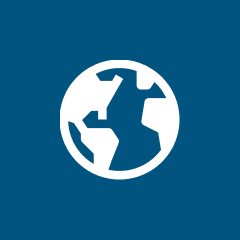
Support digitalization of government services through implementing or enhancing national digital ID infrastructure.
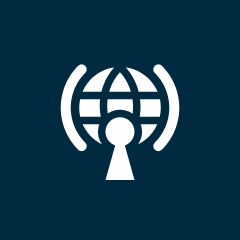
Promote Open DID Foundation independent of geopolitics, influential group, technology, mobile device, or other factors.
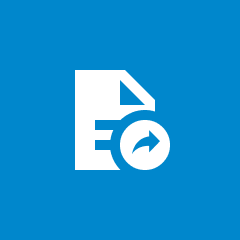
Align with global organization such as UN, World Bank, and IDB’s vision.
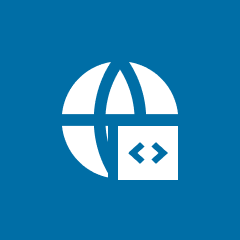
Cooperate with various international digital ID standardization organizations and development communities to innovate and manage open source platform for easy adoption

Foundation KPI
Projects
Number of open source projects and implementation of digital ID services by developing countries
Global Adoption
Number of successful uses cases leveraging technologies and standardization driven by Open DID Foundation.
Global Adoption
Create a new end-to-end business model targeting developing countries in Asia, Africa and Europe to support its national digital ID plan
Collaboration
Number of partnership and collaboration among various partners such as public, private, and academia to bring insights in DID philosophy, ideology, technology, and legislation.
Standardization
Number of standardization achievement with ISO, ITU, W3C and TTA
The Open DID Foundation’s vision is to set the DID technology standard and organize a pan-national
cooperative network. And our vision is to contribute to creating a global ecosystem based on the standard
technology and distribute the open source based DID globally.
Open source based high
DID usability
DID usability
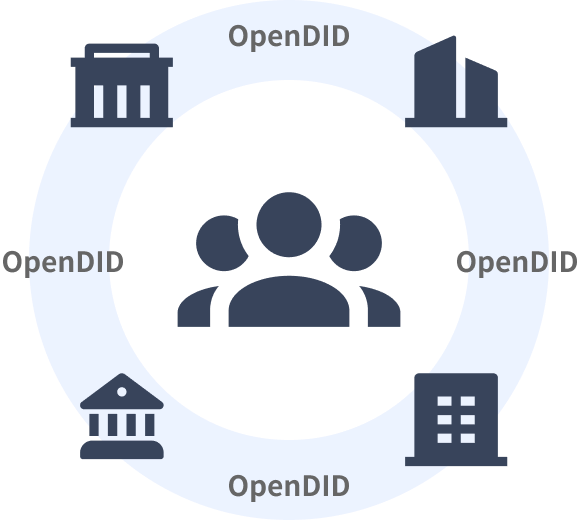
Strengthen security and trust,
pursue interoperability, and define
open standards
pursue interoperability, and define
open standards
Technology standardization
for DID compatibility
for DID compatibility
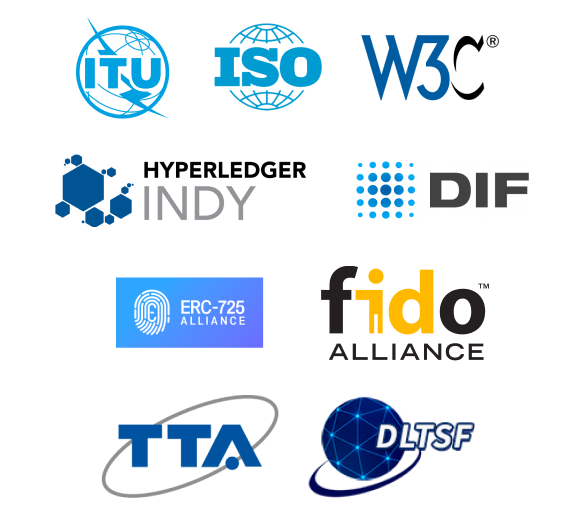
Standardize DID-related
technologies and support
certificate acquiring
technologies and support
certificate acquiring
Pan-national network
for DID distribution
for DID distribution
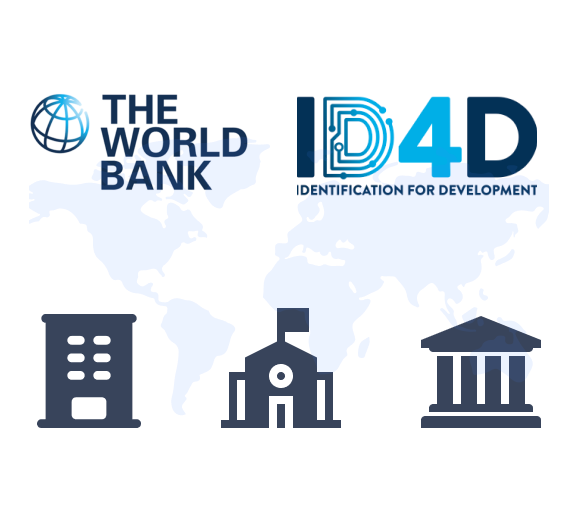
Engagement from, academia,
governments international
orgindustriesanizations and NGOs
governments international
orgindustriesanizations and NGOs
Society
Promote human rights addressing societal issues caused by
unregistered individuals
unregistered individuals
Security
Eliminate risk factors such as personal information leakages and
identity theft by escaping from centralized personal information
management
identity theft by escaping from centralized personal information
management
Economy
Reduce social costs caused by taxation, benefits and expenses, and
personal costs caused by identity verification and credential proof
personal costs caused by identity verification and credential proof
Technology
Set the groundwork for the ‘4th industrial revolution’ based
platform technology by connecting to scalable technologies such
as MyData, big data, AI and metaverse
platform technology by connecting to scalable technologies such
as MyData, big data, AI and metaverse

Open DID Foundation is governed by Executive Committee, Technology Committee, and Global Cooperation Committee. These committees advise and guide the foundation on matters of open source platform governance, cooperation, research, legal matters, policy, standardization, or/and certifications. Also the committees are responsible for all technical development decisions, including the open source community management.
Open DID Foundation has also constituted an Advisory Group to guide the project on its overall goals and direction, as well as to consult on key strategic issues.
Open DID Foundation has also constituted an Advisory Group to guide the project on its overall goals and direction, as well as to consult on key strategic issues.
Executive Committee & Members
Executive Committee members are core functional members in the decision-making processes within the foundation. The members will decide on the project direction, resource allocation, policy changes, strategic planning of the foundation as well as determining the foundation's long-term goals. Also, committee members provide oversight for the foundation's activities to ensure that the foundation is fulfilling its mission and adhering to its purpose and philosophies.
Administration Committee & Members
Administration committee members will be involved in fundraising efforts including soliciting donations or applying for grants, community engagement such as organizing events, managing communication channels, or moderating community discussions, and financial management of the foundation, ensuring that funds are used responsibly and that the foundation remains financially sustainable.
Technology Committee & Members
Technical Committee at our foundation will focused on technical aspects of the Open DID platform governed by the foundation including technical oversight, code review, architectural planning, standardization, technical disputes, innovation and research, security oversight, technology mentorship, and documentation.
Cooperation Committee & Members
Cooperation Committee will focus on fostering relationships and collaborations with other organizations, communities, or partners that share common interests or goals of Open DID Foundation. The Cooperation Committee may seek out and develop partnerships with other open source projects, companies, educational institutions, government agencies, non-profits, or other organizations. The committee may act as a liaison between the foundation and its partners or other external entities. This often involves facilitating communication, resolving conflicts, and coordinating joint activities.
We also expect the committee can work to build and maintain a strong, inclusive, and vibrant community around the foundation's projects and engage in advocacy, promoting the foundation's projects and the values of open source more broadly. This could involve speaking at conferences, engaging with media, or lobbying policymakers.
Advisory Members
The Advisory Committee is expected to provide strategic advice to the foundation. They can help in identifying opportunities and challenges, setting strategic goals, and making major decisions about the foundation's direction. Committee members provide valuable insights on DID. This might include technical topics, industry trends, and legal issues.


